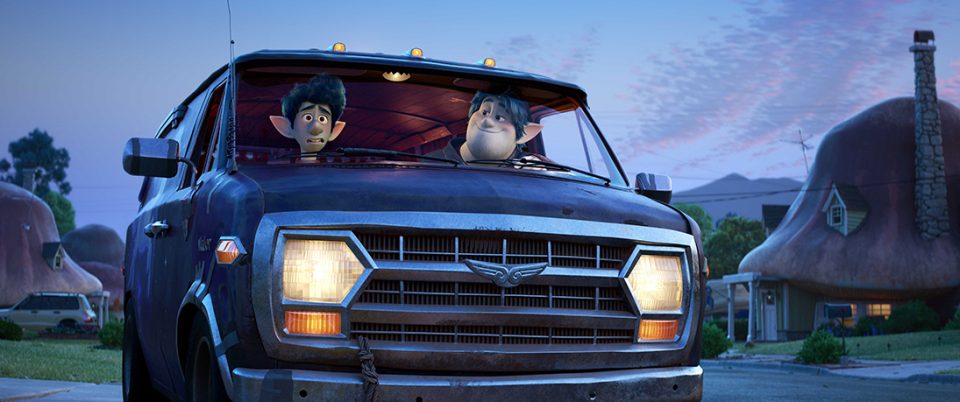At times, the Pixar movie Onward plays like an animated adaptation of a lost story by J.R.R. Tolkien or C.S. Lewis. It follows elf brothers Ian (voiced by Tom Holland) and Barley Lightfoot (Chris Pratt) on a quest to retrieve a gem and complete the magic spell that will allow them to spend 24 hours with their deceased father. Along the way, Ian and Barley must get a map from the sphinxlike Manticore, escape vengeful sprites and navigate a trap-filled labyrinth.
There are a few key differences between Ian and Barley’s adventures and those of Frodo Baggins or Lucy and Edmund Pevensie. The trap-filled labyrinth exits on a street between a high school and construction site. The sprites who pursue the Lightfoot brothers travel by motorcycle instead of fairy wings. The Manticore’s tavern is a TGI Fridays-style family restaurant, not a resting place for weary warriors.
This mix between the magical and the mundane gives Onward its charm. Although it features fantasy creatures instead of humans, its elves, goblins and trolls live in suburbs and hold down boring office jobs. With the invention of electricity, the film’s opening narration tells us, the citizens of New Mushroomton traded magic for modernity.
Despite the simplicity of their lives, some Mushroomtonites aren’t satisfied. Barley longs for an adventure greater than the college-to-career path set before him. Ian may be intimidated by his newfound magical abilities, but he knows that he doesn’t fit in with the high school party crowd. Even the Lightfoots’ mother, Laurel (Julia Louis-Dreyfus), feels discontent when she shouts, “I am a mighty warrior” during her workout routine.
No character better captures this discontent than Corey the Manticore (Octavia Spencer). When Ian and Barley arrive at her restaurant looking for a map, the once-terrifying beast greets them with an insincere smile. She spouts customer-service slogans to dissatisfied diners and stresses about the quality of the chicken fingers.
They experience the joy of living in their identities, a joy that Christians experience when we accept our calling.
But when the Lightfoot brothers meet Corey, they show her another way. Ian and Barley’s willingness to forgo their safety and rescue their father forces Corey to see herself anew. The sight of a powerful beast in a silly uniform drives her to declare, “I’ve been living a lie!” She spreads her constricted wings, shoots fire from her mouth and lets loose a mighty roar.
Director Dan Scanlon plays the Manticore’s revelation as a joke, but her feelings resonate with anyone who has felt called for something more than society’s expectations, like holding down a job, even when it’s not what we feel called to. That’s particularly true for Christians. Indeed, Martin Luther’s theology of vocation involves the belief that God calls everyone to serve.
Jesus taught that the ways of the world ran contrary to God’s way. Where worldly wisdom says that profit takes precedence over people and that exclusion leads to safety, Jesus put people first, despite the risk.
John’s Gospel records one of the most powerful instances of Jesus contradicting the ways of the world. During his trial, every time Pontius Pilate tries to assert his power as a Roman dignitary, Jesus responds by saying, “My kingdom is not from this world” (John 18:36) and reminding him, “You would have no power over me unless it had been given you from above” (John 19:11). Even in that most dangerous situation, Jesus refused to let Caesar dictate his identity. He lived according to God’s call.
The Lightfoot brothers face some dangerous situations as they search for a way to meet their father, and they find themselves rejected by those around them following more socially conventional paths. But they also experience the joy of living in their identities, a joy that Christians experience when we accept our calling.





